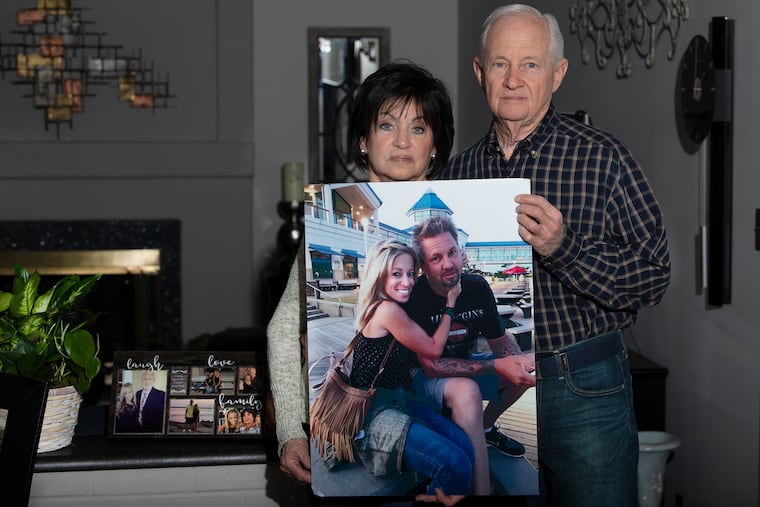A Delco woman was killed by a six-time drunk driver. Now, a bill named for her has reformed Pa. DUI law.
"Deana's Law," named after Deana Eckman, increases the penalty for drunk drivers with two or more prior DUI convictions.

When Richard and Roseann DeRosa lost their daughter four years ago to a drunk driver on his sixth DUI, they swore they would fight to change state law so no other family would suffer at the hands of a repeat DUI offender.
And this week, Gov. Tom Wolf signed “Deana’s Law,” a bill named after their daughter, Deana Eckman, that sets tougher penalties for serial DUIs, bringing the DeRosas’ mission to a close.
“It’s been an emotional rollercoaster for us, but we were never going to let this go,” Roseann DeRosa said in an interview. “We’re grateful that Deana’s memory will better protect Pennsylvanians from repeat DUI offenders, and that her name will live on to fight for the justice she didn’t receive.”
Deana’s Law upgrades a DUI charge to a third-degree felony if a driver has two or more previous DUI convictions, and to a second-degree felony if the driver has three or more convictions.
It also mandates that judges sentence DUI offenders to consecutive prison terms after their second DUI conviction, putting them behind bars for longer. For the DeRosas, that’s the law’s most powerful tool — a measure like that would have kept the driver who killed their daughter off the road.
Eckman was killed in February 2019 by David Strowhouer, 33, who crashed his father’s pickup truck head-on into a Subaru WRX driven by Eckman’s husband. Strowhouer’s blood-alcohol level was .199 — nearly three times the legal limit — when he tried to illegally pass a car by swerving into oncoming traffic.
The crash was Strowhouer’s sixth DUI in nine years. He had been paroled just five months earlier from a one-to-five-year sentence in another, nonfatal crash. Had a judge sentenced Strowhouer to consecutive jail time for each offense in those earlier cases, he wouldn’t have been free to drive on the day he killed Eckman.
Strowhouer is now serving a 24-to-51-year state prison term for third-degree murder, homicide by vehicle while DUI, and related offenses in Eckman’s death.
“They took so much time to adjudicate him after his earlier DUI incidents, he was able to commit more and then get concurrent sentences,” Richard DeRosa said. “That means he essentially got off scot-free for one of his violations. That was a loophole we wanted to close.”
» READ MORE: A family’s push to change Pennsylvania’s DUI law seemed like an easy win. But it died a slow death in Harrisburg.
The DeRosas, who live in Brookhaven, found an early ally in their state senator, Tom Killion, a Delaware County Republican who introduced the first version of Deana’s Law. The measure, which strengthened penalties for repeat DUI offenders, languished in Harrisburg for months and did not pass.
When Killion lost his bid for reelection in 2020, the fight for Deana’s Law was continued by his colleague, state Rep. Chris Quinn, also a Delaware County Republican. The measure passed the Senate 46-4 on July 7 — to thunderous applause, according to Quinn, who said the law targets the “worst of the worst” DUI offenders.
“These are truly the people who just refuse to abide by our laws,” he said. “It’s about protecting you and your kids and all your loved ones, and it’s about my wife and my kids and all the people I care about.”
Quinn credited the bill’s passage to the DeRosas, whose passion, he said, lifted Deana’s Law above the hundreds of other measures introduced in the state legislature each year. Their dedication — and the law’s aim to keep dangerous drivers off the state’s roads — gave the measure a weight that he said legislators could not ignore.
“I could call them at any time, and they were ready to come to Harrisburg, talk to anyone, and advocate for the issue at any time,” he said. “Without them, I don’t think this legislation would ever have made it through the House or Senate.”